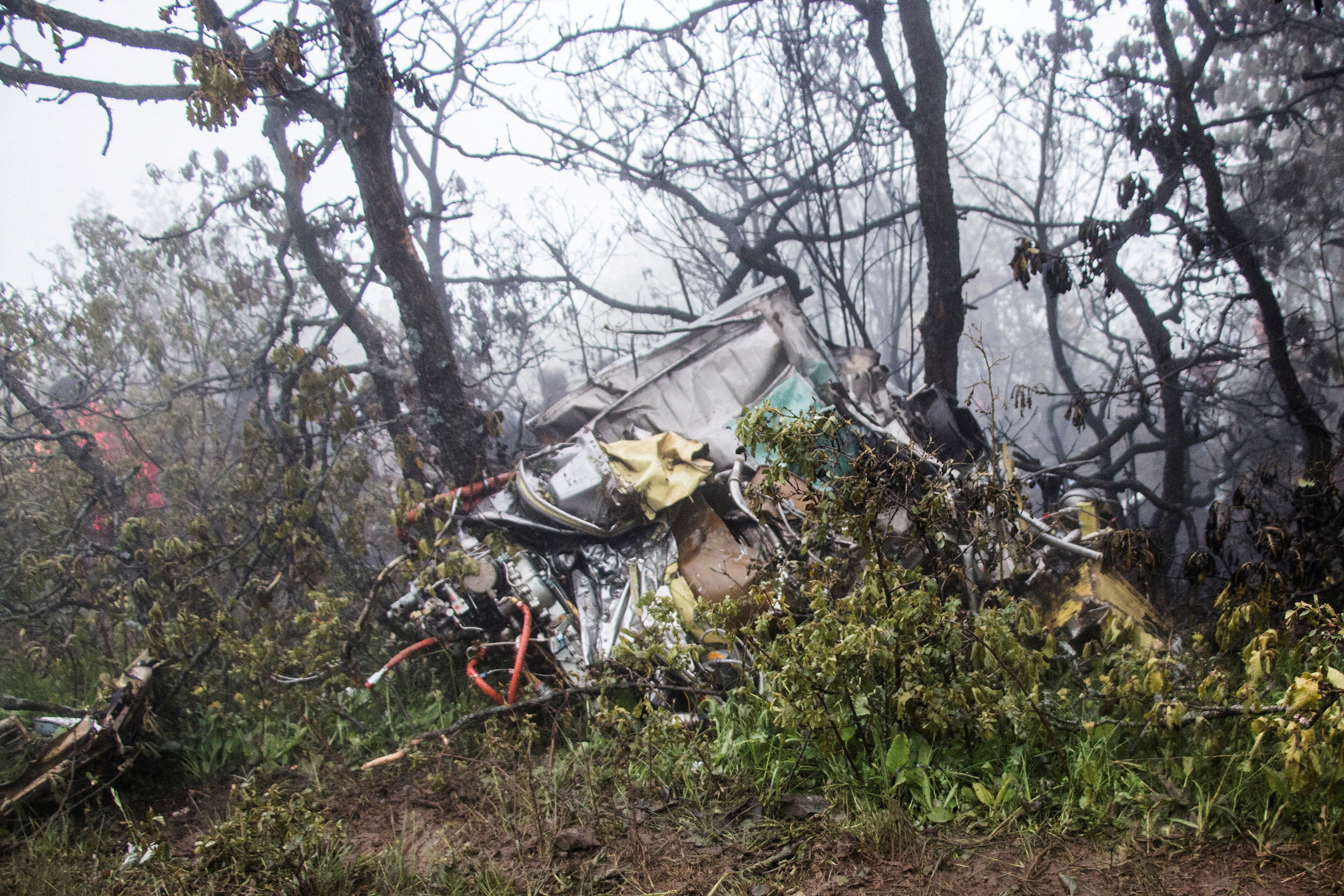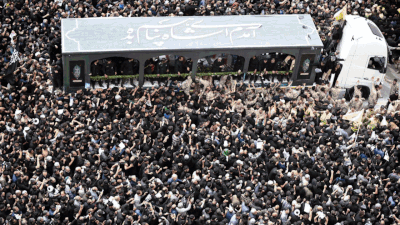Iranian President Ebrahim Raisi and Foreign Minister Hossein Amir-Abdollahian died on Sunday after their helicopter crashed in the mountainous northwest region of Iran. The crash, which also claimed the lives of several other officials, occurred as they were returning from a visit to the Azerbaijan border. State media confirmed the deaths, marking a significant loss for the Iranian government.

Search and Rescue Efforts Hampered by Poor Weather
The helicopter went missing in dense fog while traversing mountainous terrain, complicating rescue efforts. Despite locating the wreckage, rescue teams reported no signs of life among the passengers. The challenging weather conditions significantly hindered the search operations, according to the Iranian state news agency IRNA. The head of the Iranian Red Crescent Society, Pir Hossein Kolivand, mentioned that the helicopter was spotted from a distance of approximately 2 kilometers.

Raisi’s Global Condolences and Mourning
Following the tragic news, world leaders expressed their condolences. Russian President Vladimir Putin described Raisi as a “true friend of Russia,” while China called his death a “great loss to the Iranian people.” Indian Prime Minister Narendra Modi and other international figures also mourned the loss. In a show of respect, India declared a one-day state mourning on May 21, with the national flag flown at half-mast and no official entertainment planned.

India Observes State Mourning
In response to the death of Iranian President Ebrahim Raisi and Foreign Minister Hossein Amir-Abdollahian, the Government of India declared a day of state mourning on May 21, 2024. As a mark of respect, the national flag was flown at half-mast across all government buildings, and official entertainment events were canceled. This gesture underscores the deep ties and diplomatic respect between India and Iran.

Immediate Political Transition
As per the Iranian constitution, First Vice President Mohammad Mokhber will assume the duties of the president. Supreme Leader Ayatollah Ali Khamenei, who has announced five days of mourning, stated that Mokhber will lead the executive branch until further notice. Ali Bagheri Kani has been appointed as the new foreign minister. The sudden transition comes at a crucial time for Iran, which is facing internal dissent and international challenges.
Raisi’s Political Journey and Legacy
Ebrahim Raisi, who was 63, had a long and controversial career in Iranian politics. Born in Mashhad, he underwent religious education and trained at the seminary in Qom. Raisi served as a prosecutor in various jurisdictions before becoming Tehran’s attorney general. His involvement in the 1988 mass executions of political prisoners has been a point of significant controversy. In 2017, Raisi ran unsuccessfully for president but secured the position in 2021 amid low voter turnout and widespread disqualification of reformist candidates.

Impact on Iran’s Political Landscape
Raisi’s death leaves a void in Iran’s political landscape. Seen as a potential successor to the 85-year-old Supreme Leader Ayatollah Ali Khamenei, Raisi’s policies aligned closely with the clerical establishment’s hardline stance. His tenure was marked by strict enforcement of morality laws, violent suppression of anti-government protests, and intense nuclear negotiations with world powers. His departure could shift the balance within Iran’s dual political system, where the supreme leader holds ultimate authority.

International and Domestic Challenges
The crash comes at a time of heightened tensions and challenges for Iran. The country has been grappling with economic issues, mass protests, and international pushback over its support for Hamas and its military ties with Russia. Just last month, Iran and Israel exchanged attacks, further straining their already tense relations. Domestically, Raisi’s death may spark political instability as the country navigates the transition of power.

Upcoming Presidential Election
In the wake of this tragedy, Iran’s state media announced that a new presidential election will be held on June 28, 2024. This expedited timeline aims to ensure a smooth transition and restore political stability. The election will be closely watched as the country seeks a leader capable of navigating its numerous internal and external challenges.
Conclusion
The tragic death of President Ebrahim Raisi and Foreign Minister Hossein Amir-Abdollahian marks a significant moment in Iranian history. As Iran mourns its leaders, the political landscape is set for potential shifts and challenges. The global community watches closely as Iran embarks on this uncertain path, with the immediate focus on ensuring stability and continuity in governance.




2 Comments
Envato Elements Group Buy has transformed my creative process!
Accessing an abundance of resources for design at a reduced cost is a game-changer.
This type of collaboration makes high-end design accessible,
perfect for any creative venture. Highly recommend for those who want to take their work to the next level without breaking the budget!
Pingback: Iran’s Supreme Leader Seeks to Replace Raisi in Upcoming June 28 Vote. - INPAC Times